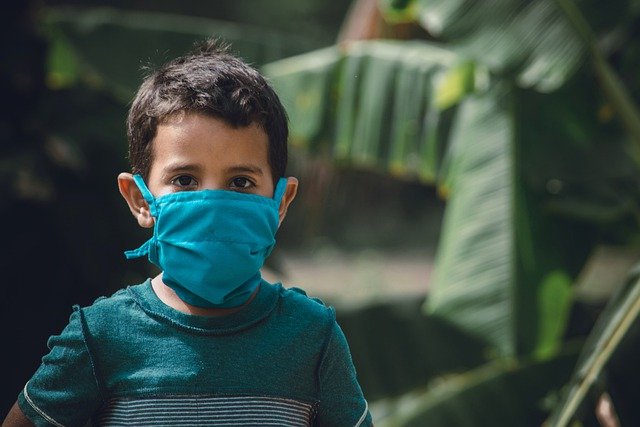2020 has changed our world dramatically. We know that adults are struggling with the challenges brought on by shut downs and worries about protecting themselves and their families from the virus. But what about kid’s mental health during covid?
Our children have had to deal with their own upheavals. They’ve gone from familiar school routines and activities to shortened sports schedules, reduced or eliminated school programs and navigating through virtual learning while being isolated from friends. All of this disruption has raised their own stress levels.
Signs Of Pandemic Stress In Kids
Just as with adults, stress and anxiety in children often shows up in both physical and emotional ways.
Emotional symptoms can include:
- Expressing fears about their health or that of a family member
- Trouble concentrating in school, or slipping grades and test scores
- A worsening of mental health conditions they may already have
- Not wanting to do things they usually enjoy
- Expressing fear and / or hopelessness about the future
- Angry outbursts, crying or tantrums
Physical symptoms can include:
- Nightmares and problems sleeping
- Gastrointestinal problems, such as nausea, stomachaches or diarrhea
- Headaches
- Changes in eating patterns
- Muscle tension or, conversely, indifference and listlessness
What Should I Do If I Am Concerned With My Child’s Well Being Due To Covid-19?
Check in with your kids – It’s easy for children to get carried away by their fears, while keeping their worries to themselves. This is especially true because kids can sometimes have trouble expressing their anxiety. For that reason, it’s a good idea to check in with your kids periodically. This way, you can answer any questions and help to calm them.
Limit catastrophic thinking – Whether we realize it or not, kids pick up on their parent’s distress. As difficult as it may be for you to deal with your own concerns and “what ifs” about the impact of the pandemic, it is best if you can refrain from talking too much about them around your children.
We aren’t saying that you should act like your fears aren’t real issues, but it can help children feel more secure if parents can deal with their concerns in a healthy way.
Catastrophic thinking (i.e: automatically envisioning the worst in a situation) teaches kids to model the same behavior when dealing with their own stress. You want your child to come out of the pandemic stronger, not someone who is terrified of what the future may hold.
Think positively – You’ve probably heard the saying, “fake it ‘til you make it.” That applies with positive thinking as well.
A 2020 study by Marmolejo-Ramo, et al, published in Experimental Psychology showed that when your facial muscles turn up in a smile, “the emotion implied by the covert facial expression seems to engage a wide range of motor systems that, all together, are representative of the ongoing emotional state.”
What this means is that forming a smile with your facial muscles activates neurons in your brain. These neurons actually put you into a more positive emotional state. If you feel more positive, your outlook will be more positive, too.
Take a break from the news – The next thing to do is to take a break from your news media exposure, as well as your social media feeds. Constantly watching and reading about pandemic death counts and hearing doom and gloom stories can make anyone feel helpless. They keep our emotions and pandemic anxiety elevated.
Use the pandemic as a way to reset. Eat meals together with your kids, do activities as a family, and enjoy the things you can right now. Find creative ways to engage your kids, no matter how lame they say you are.
Boredom breeds pessimism and a more negative outlook, so try thinking out of the box. Do something totally silly with your children, like making one of those videos we’ve been seeing of dads with dancing with their kids. What your kids will remember is that you spent time with them. Doing something fun will teach them to look for the positive side of a challenging situation.
Keep to a routine – Kids feel more secure when they know what to expect and can anticipate what’s coming. Having meals or doing school work at a certain time, setting time aside for exercise and family activities, and going to sleep on a schedule all contribute to helping us feel in control. It’s okay to be flexible but, as much as possible, try to stick to the routines you had before the pandemic.
Helping Kid’s Mental Health During Covid
If your child is struggling with anxiety or depression during the pandemic, our compassionate child psychologists are here for them. For more information, contact The Children’s Center for Psychiatry Psychology and Related Services in Delray Beach, Florida or call us today at (561) 223-6568.

